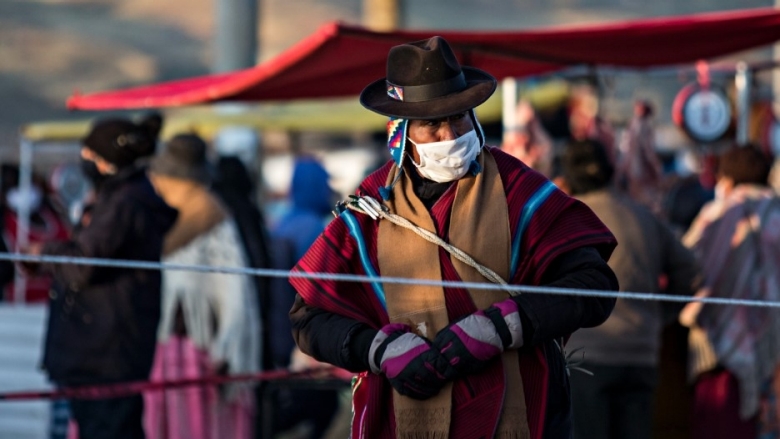Beneficiary Story/Quote
"I received a bonus during the pandemic. I used it to make biosecurity masks; I'm a craftsman. We couldn't go out to work, everything was paralyzed, we needed to invest and there was no access to the banks at that time, so it was very useful to buy supplies and keep on producing. I also used a part of the bonus to buy some food for my family."
Challenge
The onset of the COVID-19 pandemic in Bolivia, together with the stringent social distancing measures adopted by the country’s government to respond, caused substantial economic and welfare impacts, particularly affecting the poor and vulnerable. In Bolivia, where a 2018 survey had found that 80 percent of private sector workers worked in the informal sector and most of the population was vulnerable to income shocks, an urgent ramping up of social assistance was essential. The impacts of COVID-19 mitigation measures affected not only poor and vulnerable households but also large segments of the middle class who were self-employed in the informal economy. Bolivia’s social assistance programs, which included conditional cash transfers, social pensions, and disability benefits, were not designed to respond to sudden income shocks. The delivery system for social assistance was characterized by institutional fragmentation, with multiple beneficiary registries and cash payment systems.
Approach
The World Bank supported the provision of temporary economic support to poor and vulnerable households impacted by the COVID-19 pandemic by providing financial resources to implement
temporary cash transfers nationally and expand the use of an effective payment system. After the initiation of lockdown measures in March 2020, the Government of Bolivia (GoB) created three new temporary cash transfer programs: Bono Familia (BF), Bono Canasta Familiar (BCF), and Bono Universal (BU). The World Bank project financed BU and BF and provided analytical support in designing all the three programs. Together, these mechanisms were intended to provide economic support for households affected by the COVID-19 pandemic, with the combination of all three transfers ensuring that all households in the bottom 60 percent of the population received social assistance.
The World Bank teams provided timely and relevant technical assistance to the GoB during the project’s preparation. At the height of the pandemic, the World Bank played a key role in sharing the measures other countries around the world were taking to tackle the crisis. In April 2020, as part of project preparation, the World Bank team ran economic simulations to help the GoB fine-tune its response and ensure that it would reach the poor and vulnerable, as well as workers who might find themselves out of work. For instance, based on the simulations, the BCF was expanded beyond families with children receiving public education to also reach schools in the private sector with low-income students.
